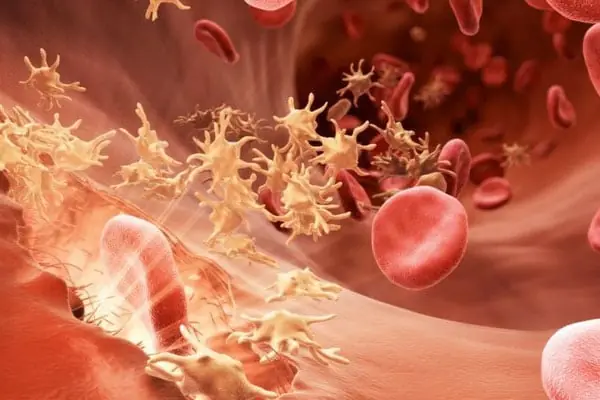
Simulation Reveals Harsh Effects of Ozempic Beyond Weight Loss
Simulation Reveals Harsh Effects of Ozempic Beyond Weight Loss

The pervasive desire for an "ideal" appearance, fueled by social media and influencer culture, often leads individuals to seek shortcuts for weight loss. While a balanced diet and consistent exercise are the traditional paths, many are now turning to medications like Ozempic, including well-known figures like Oprah Winfrey, Rebel Wilson, and Amy Schumer.
However, the widespread use of Ozempic for weight loss, despite it not being FDA-approved for that specific purpose, comes with potential consequences that many may not be aware of.
Understanding Ozempic's Mechanism and Unforeseen Effects
Ozempic's primary function is to help manage Type 2 diabetes. While it effectively aids significant weight loss, a recent simulation by YouTuber @ZackDFilms highlights the less-discussed realities of its impact on the body.
According to @ZackDFilms, once Ozempic enters the bloodstream, it triggers the brain's satiety center, leading to a feeling of fullness and a natural decrease in appetite. This process also helps balance blood sugar and reduces constant food cravings.
While these effects sound appealing for weight management, Ozempic can come with significant side effects, particularly regarding body composition.

The Hidden Cost: Muscle and Bone Loss
Dr. Ben Bickman, a scientist and professor at Brigham Young University in Utah, has spoken out about the drug's potential to cause muscle loss. He explained that a substantial amount of lean mass is lost as a person sheds weight on Ozempic.
"For every ten pounds of weight loss, only six is fat – four of it is coming from non-fat sources like muscle and bone," Dr. Bickman told Thomas DeLauer. He further warned that muscle and bone mass might never return, while the body has no trouble regaining fat mass.
Even more concerning, Dr. Bickman cited a study that found a version of these drugs actually stimulates the production of new fat cells.
He elaborated on the long-term implications: "This becomes a problem because when a person starts to regain fat mass after stopping Ozempic, with more fat cells comes a greater potential to gain more fat. As a result, even though a person may still weigh less than they did before starting the drug, they may be fatter, with a higher percentage of body fat."
This crucial insight underscores that Ozempic, and other weight-loss drugs, are not a magic bullet. While they can facilitate rapid weight reduction, the quality of that weight loss and its long-term implications for body composition and metabolism should be carefully considered.
News in the same category


Scientists Finally Figure Out What’s Causing Girls to Get Periods at a Younger Age

Top Foods to Avoid After 60 for Better Health

Aspergillus Fungus Threatens Millions As It Spreads Due To Climate Change, Scientists Warn

What Are the Tiny Blisters on Your Hands in Summer Trying to Tell You?

5 Pains in the Body That May Signal Early-Stage Cancer: Don’t Delay, or It May Spread

9 Early Warning Signs of Stomach Cancer: See a Doctor Immediately If You Have Even One

Dark Under-Eye Circles: A Subtle Health Warning You Shouldn't Ignore

4 Types of People Who Should Limit or Avoid Eating Cabbage

12 Warning Signs That May Signal a Brain Aneurysm — Don't Ignore Them

The Little Bow: Unraveling the Mystery on the Front of Women's Underwear

Your Poop and Colon Cancer: Decoding Early Warning Signs

Why Mosquitos But Some People More Than Others

Surprising Causes Of Hives Revealed — What May Be Triggering Your Skin Reaction

Stage 4 cancer patient warns overlooked minor signs can mask a fatal disease

Parents’ Common Feeding Habit Leads to Stomach Cancer in 2-Year-Old Boy

36-Year-Old Teacher Passes Away from Diabetes Despite Not Liking Sweets — Doctor Says It's Due to 4 Favorite Foods

American Doctor Identifies 5 Warning Signs Your Liver Is Overloaded – Seek Medical Attention Even If You Have Just One

Experts Warn Against Cervical Adjustments After Rare Paralysis Case In Neck Clinic
News Post

Experts Say Turning Off Wifi And Keeping Phones Out Of The Bedroom Could Boost Your Health

If You See A Woman Wearing A Wedding Ring On Her Pinky Finger Here’s What It Means

Experts Are Shedding Light on the ‘Death Rattle’ Phenomenon Before Passing

Experts Break Down How Far You’d Need To Be To Survive A Nuclear Blast

Scientists Finally Figure Out What’s Causing Girls to Get Periods at a Younger Age

Experts Warn 1,000ft Mega Tsunami Could Slam Into Us Coast — Is Your Hometown In Danger?

Man Who Predicted Covid Outbreak Reveals Chilling Warning About New Emerging Crisis

Top Foods to Avoid After 60 for Better Health

Flight Attendant Reveals Why Cabin Says Hello As You Board, and It’s Not What Think

10 Cities That Could Be Underwater by 2050. Here’s The Full List

Aspergillus Fungus Threatens Millions As It Spreads Due To Climate Change, Scientists Warn

The Incredible Story of a British Airways Pilot Who Survived Being Ejected from a Plane for 20 Minutes

Never keep these 4 relics after losing a loved one

Euphorbia Hirta: Nature’s Hidden Gem for Wellness

Can Garlic Support Healthier Veins Naturally?

Can Chia Seeds Support a Healthier Waistline Naturally?

What Are the Tiny Blisters on Your Hands in Summer Trying to Tell You?

5 Pains in the Body That May Signal Early-Stage Cancer: Don’t Delay, or It May Spread

9 Early Warning Signs of Stomach Cancer: See a Doctor Immediately If You Have Even One
